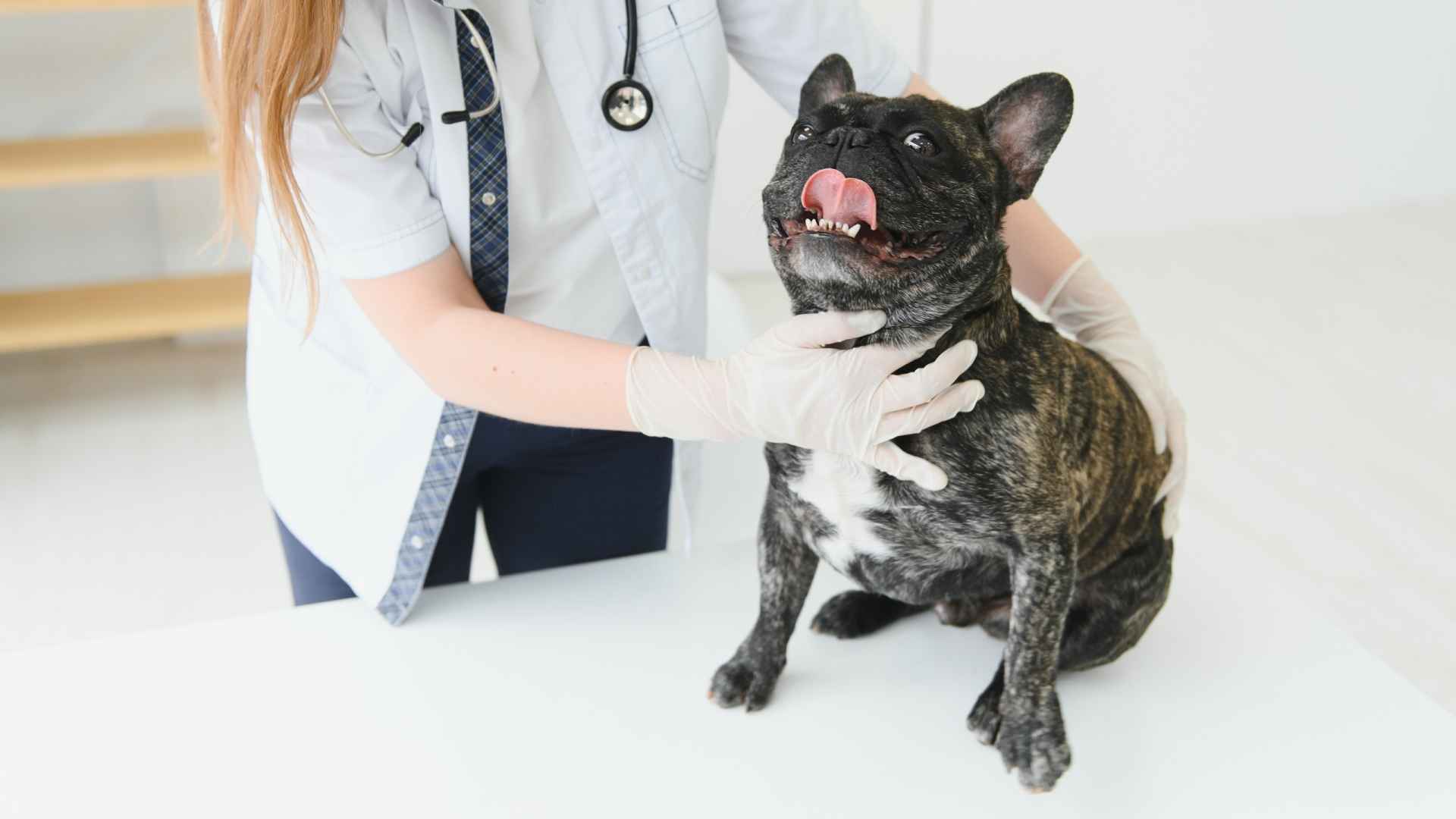Dogs bring joy, comfort, and unconditional love into our lives—but not all breeds are blessed with perfect health. Some of the most popular and beloved dogs are also the ones that face unique health challenges, from breathing issues to joint problems.
While this doesn’t make them any less wonderful, it does mean that owners need to step up with extra care, patience, and attention. These most unhealthy dog breeds require more than just food and walks—they need specialized care, regular vet visits, and sometimes lifestyle adjustments to help them live their best lives.
But for many dog lovers, the reward far outweighs the effort. These dogs may be more vulnerable, but they’re also some of the most affectionate, loyal, and charming companions you’ll ever meet. If you’ve ever considered bringing one of these breeds into your home—or if you already share your life with one—understanding their needs is the key to helping them thrive.
Let’s explore the dog breeds that are more prone to health problems and what you can do to ensure they stay happy, healthy, and full of love.
Did you know? Some dog breeds are genetically prone to health issues, from joint problems to heart conditions. Being aware of these risks early can help you provide better care and extend your pup’s happy, healthy life.
Unhealthy Dog Breeds You Should Pay More Attention To
1. English Bulldog

With their unmistakable wrinkled faces, broad shoulders, and stocky build, English Bulldogs are impossible to miss. Once bred for bull-baiting and as butcher’s assistants, these dogs have transformed over generations into calm, affectionate companions.
Their iconic underbite, saggy jowls, and muscular frame give them a unique charm, making them beloved family members—but beneath their lovable exterior, Bulldogs are considered one of the more “unhealthy” breeds, requiring careful attention from their owners.
However, their low-slung bodies, short snouts, and sensitive skin make them prone to several serious health problems. Prospective owners need to be aware of potential issues, including:
Respiratory issues (brachycephalic airway syndrome)
Joint issues like hip and elbow dysplasia
Skin problems
Eye problems like cherry eye
English Bulldogs are moderately active and enjoy short walks, gentle play, and lounging with their families. Because Bulldogs are not well-adapted to heat, owners should provide shade, water, and air-conditioned environments during warm weather, and limit walks to cooler parts of the day.
PetMD noted that breed-specific diets can also support their gastrointestinal, joint, and skin health. With attentive care, regular vet visits, and plenty of affection, English Bulldogs can thrive as devoted, loving, and uniquely charming companions.
2. Pug
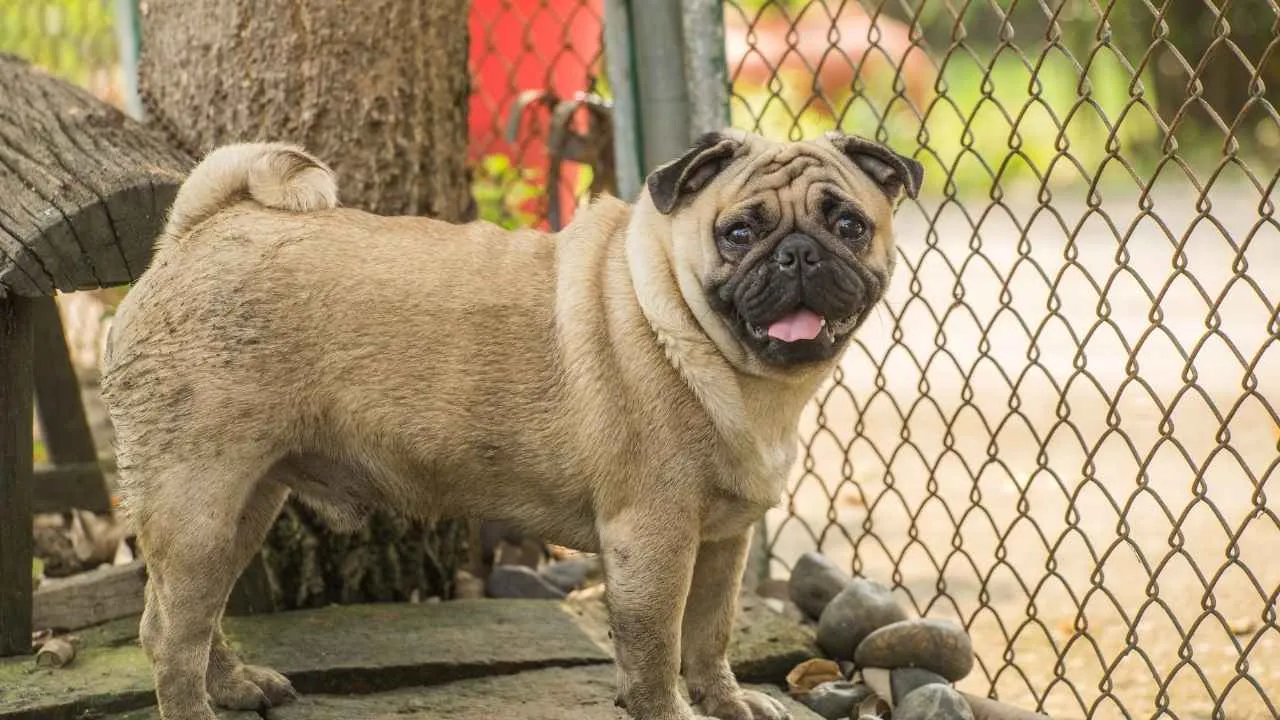
With their signature wrinkled faces, big round eyes, and playful personalities, Pugs are small dogs with enormous charm.
Originating in China over 2,000 years ago, these little royals quickly became favorites among emperors and aristocrats—and their popularity hasn’t faded. Pugs are affectionate, friendly, and eager to please, making them ideal companions for families, singles, and seniors alike.
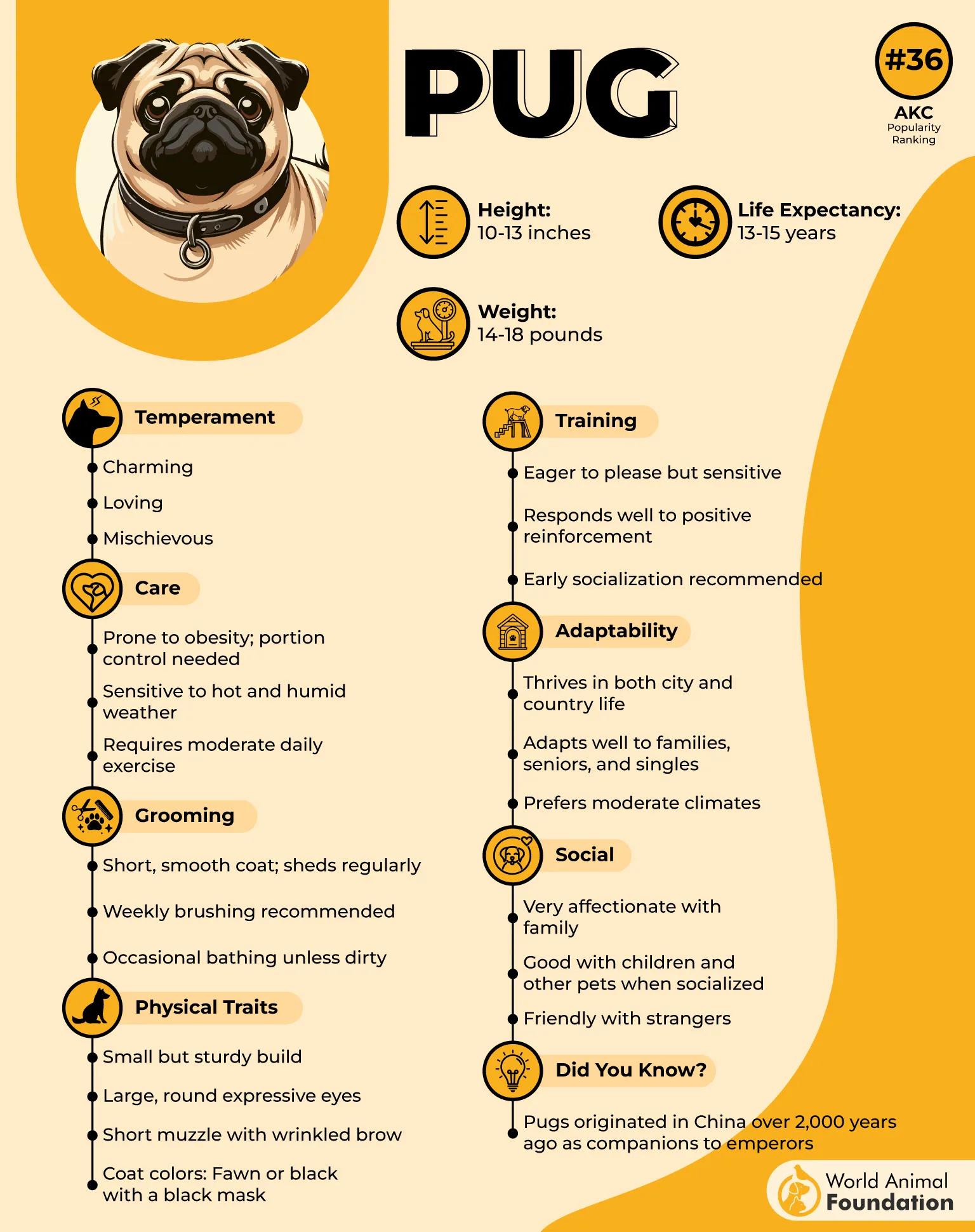
But beneath their adorable exterior, this breed carries some health vulnerabilities that owners should be aware of. Despite their generally cheerful disposition, Pugs are prone to common health concerns, including:
Breathing problems due to the brachycephalic breed.
Eye issues such as proptosis (eye displacement) and corneal ulcers
Hip dysplasia
Dental disease
Pugs thrive on human interaction and love cuddles, playtime, and attention. Their moderate energy levels mean they enjoy short walks and gentle play, but their compact, muscular bodies require careful management to prevent strain or injury.
With proper veterinary care and a well-managed diet, Pugs can live long, happy lives. When nurtured properly, these lovable little dogs aren’t just pets—they’re loyal, entertaining, and endlessly affectionate companions who fill any home with joy.
3. Dachshund

With their unmistakable long bodies, short legs, and playful personalities, Dachshunds—affectionately nicknamed “wiener dogs”—are impossible to miss.
These spirited little dogs are brave, curious, and endlessly energetic, making them a favorite among dog lovers in the U.S. Their compact size and bold personality might make them seem low-maintenance, but their unique body structure comes with specific health considerations that owners need to watch closely.
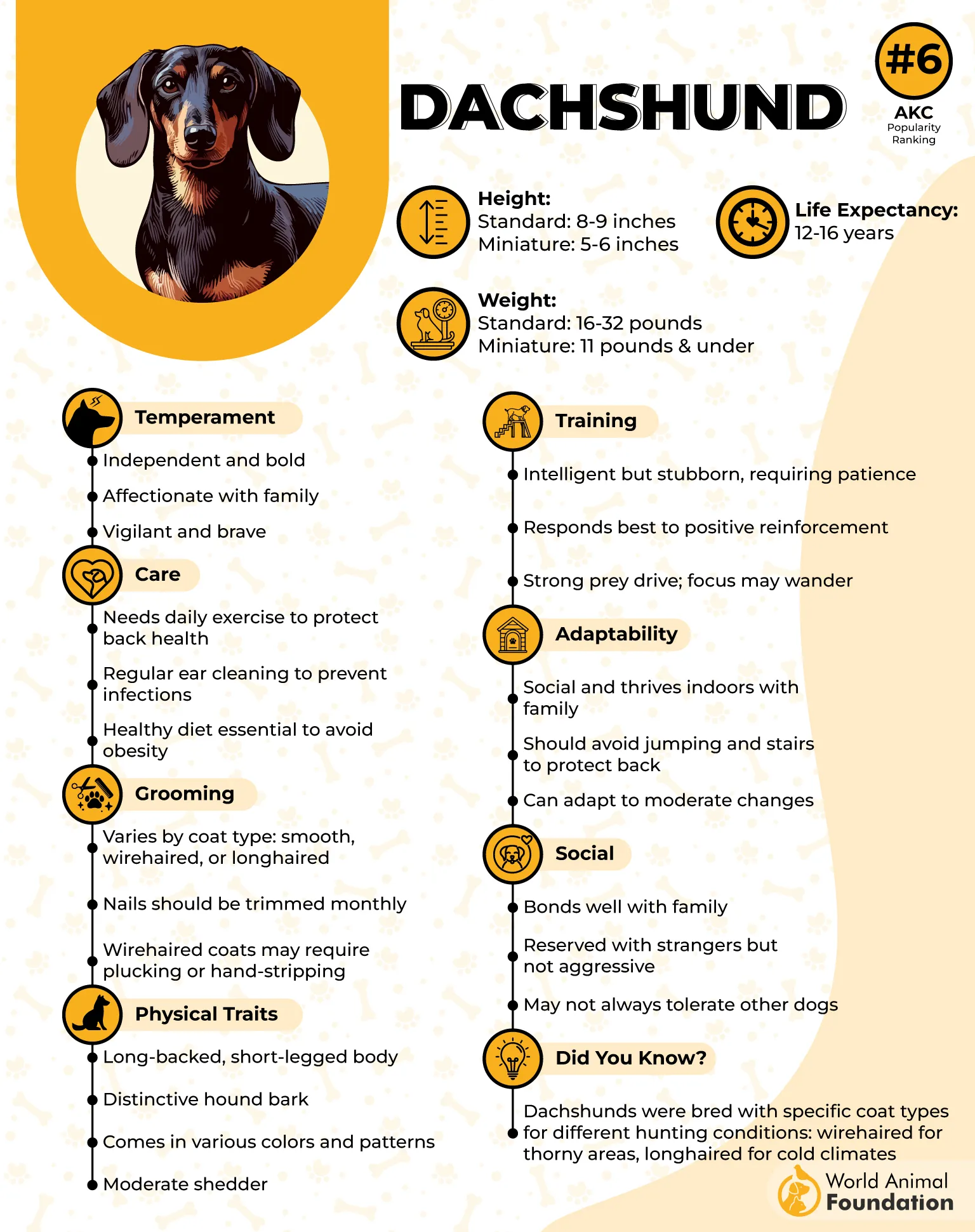
Despite their charm, Dachshunds are prone to several health challenges, including:
Intervertebral disc disease (IVDD)
Obesity
Patellar luxation
Eye problems such as progressive retinal atrophy (PRA), cataracts, and glaucoma
Dachshunds thrive on mental stimulation, interactive play, and short walks, but their long backs make them prone to injuries if not carefully monitored. They are devoted companions and often form strong bonds with their families, showing loyalty and spunk in equal measure.
However, their high energy and playful nature mean owners must supervise interactions with children and other pets to prevent accidental injuries.
Maintaining a healthy weight, providing gentle exercise, and regular vet check-ups can help these feisty little dogs live long, active, and happy lives. With proper care, a Dachshund is not just a pet—they’re a playful, loving, and endlessly entertaining companion.
4. Cavalier King Charles Spaniel

Step into the world of royalty, and you’ll find the Cavalier King Charles Spaniel reigning supreme in hearts everywhere.
Named after King Charles I and II of England, this small, elegant breed was designed for companionship, and centuries later, they remain devoted lapdogs and loving family members.
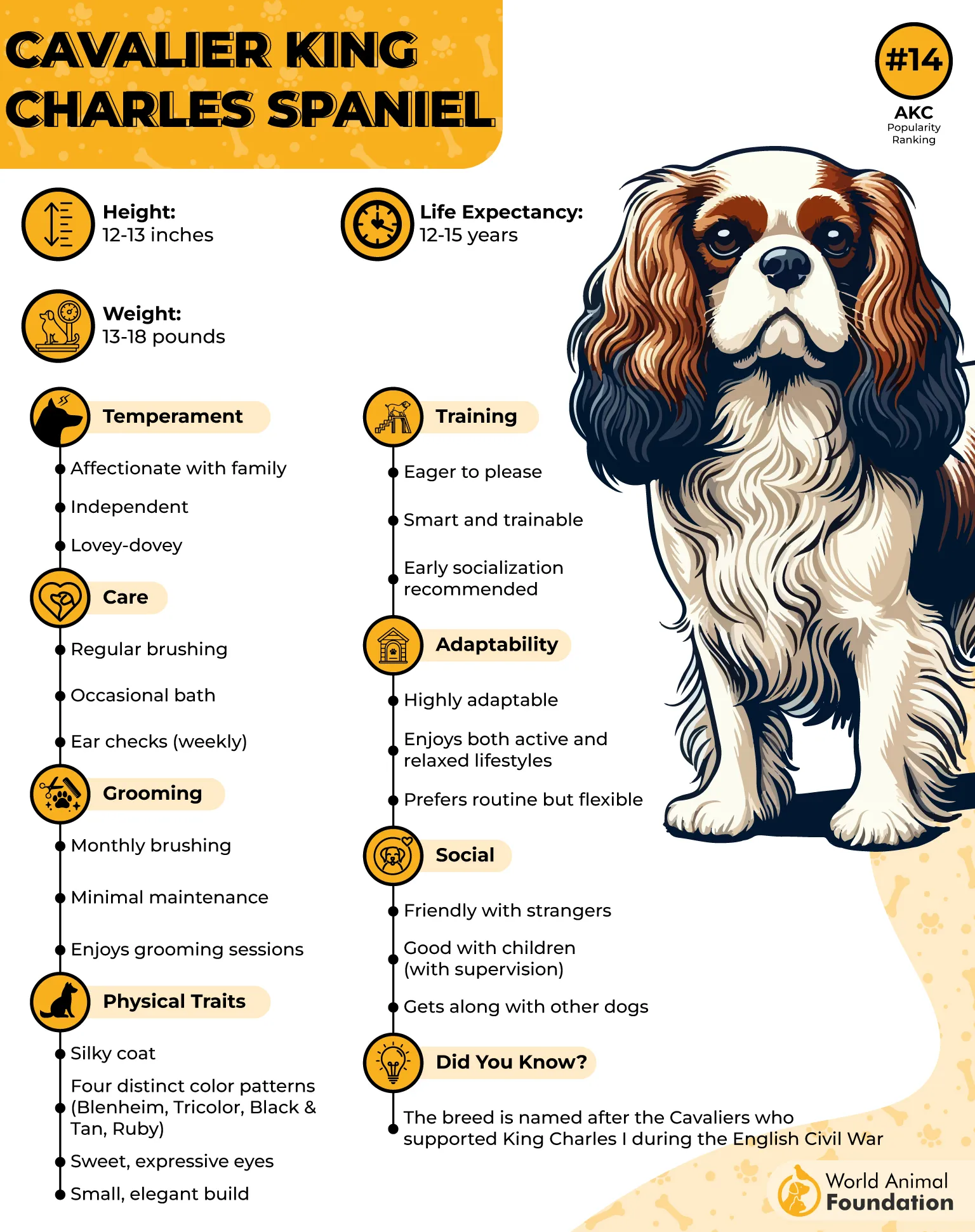
With their silky coat, floppy ears, and soulful eyes, Cavaliers are the picture of charm—but their delicate build comes with some health concerns that every owner should know.
Despite their loving nature, Cavaliers are prone to several serious health issues, including:
Mitral valve disease
Eye problems, including cataracts and retinal disorders
Syringomyelia
Ear infections
Cavaliers are affectionate, gentle, and happiest when close to their human companions. They thrive in calm households and enjoy daily attention, walks, and interactive play. Their long coat requires regular brushing and professional grooming to stay beautiful and healthy.
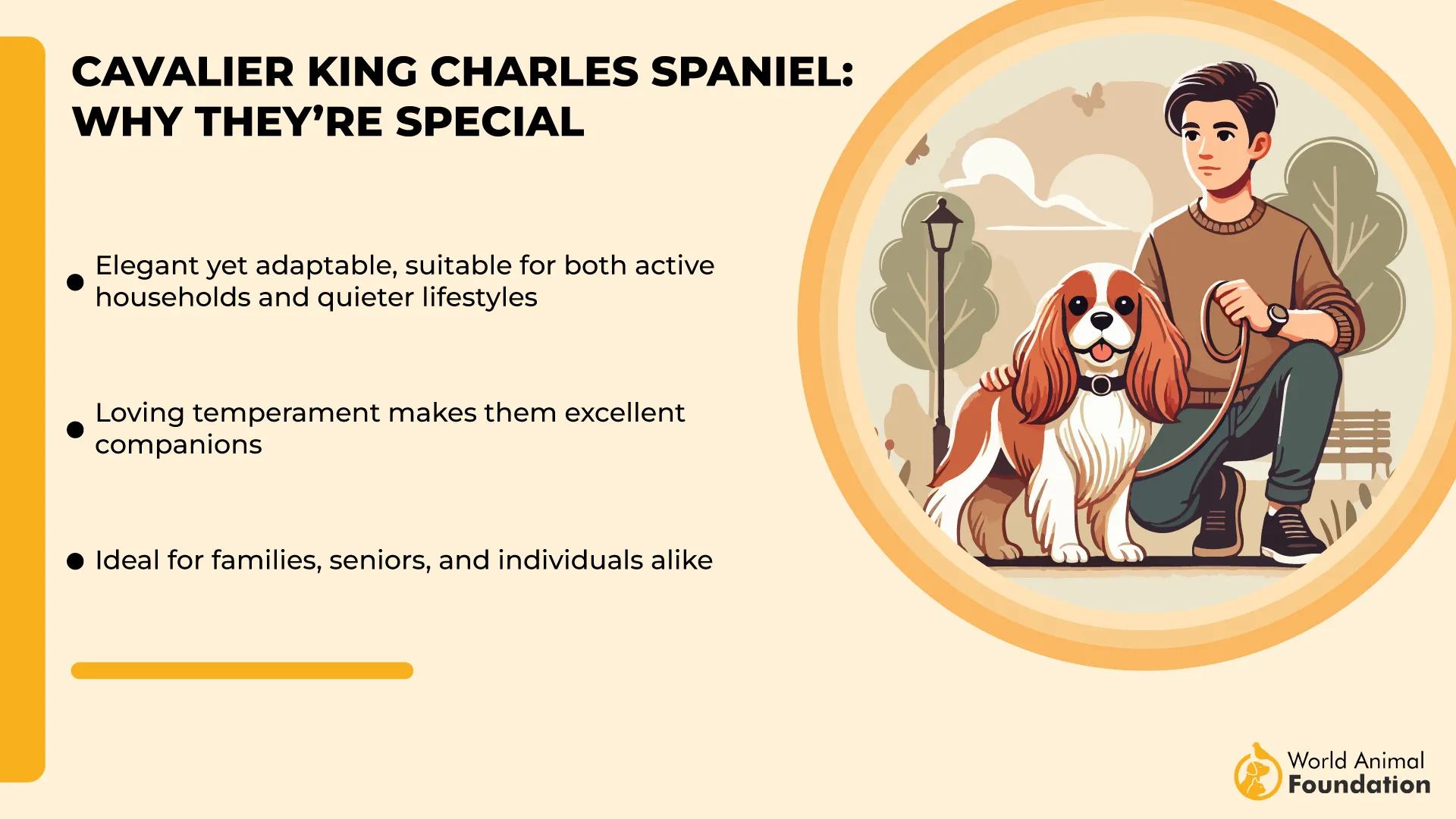
With careful monitoring, routine veterinary visits, and a nurturing environment, Cavalier King Charles Spaniels can enjoy a long, happy life filled with cuddles and companionship.
For those seeking a devoted, elegant, and affectionate dog, this royal breed offers endless love—just be prepared to keep a watchful eye on their health along the way.
5. Boxer
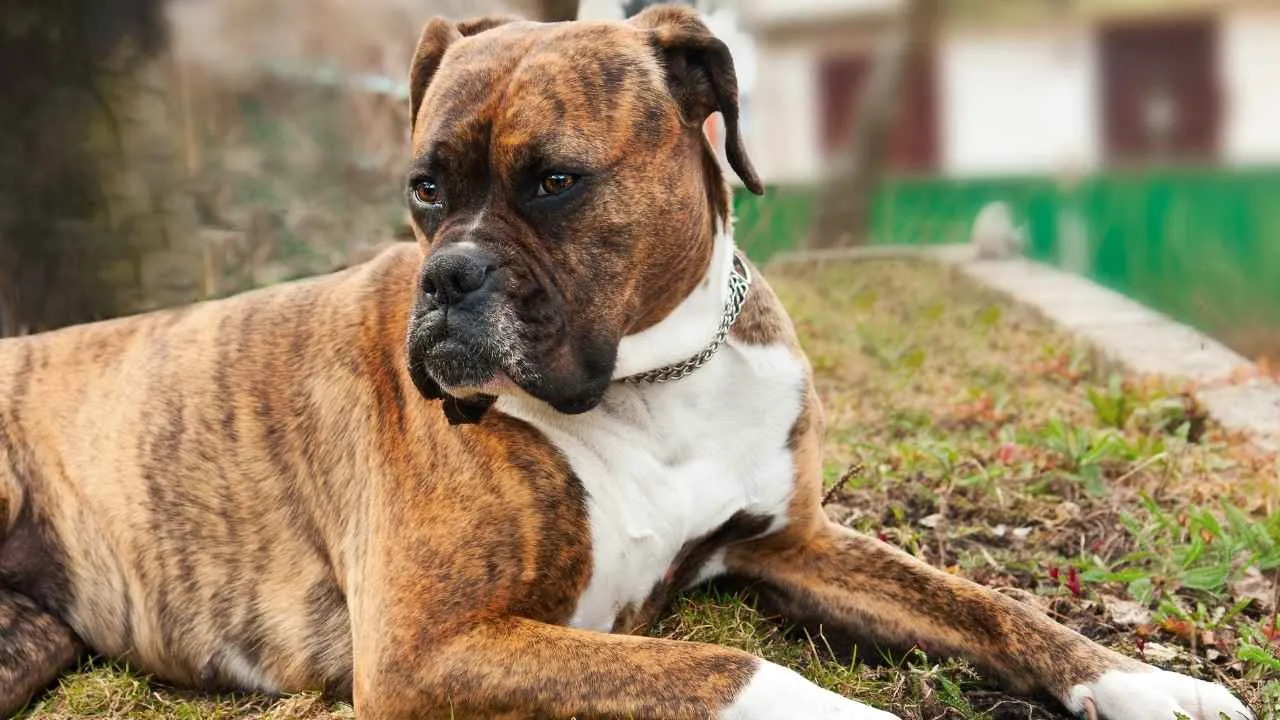
Bold, energetic, and endlessly loyal, the Boxer is a breed that commands attention. With a reputation for courage and intelligence, Boxers have been trusted in police work, protection roles, and as devoted family companions.
Their playful energy and affectionate nature make them irresistible to active households—but beneath that muscular, athletic exterior, Boxers have some health concerns that every owner should be aware of.
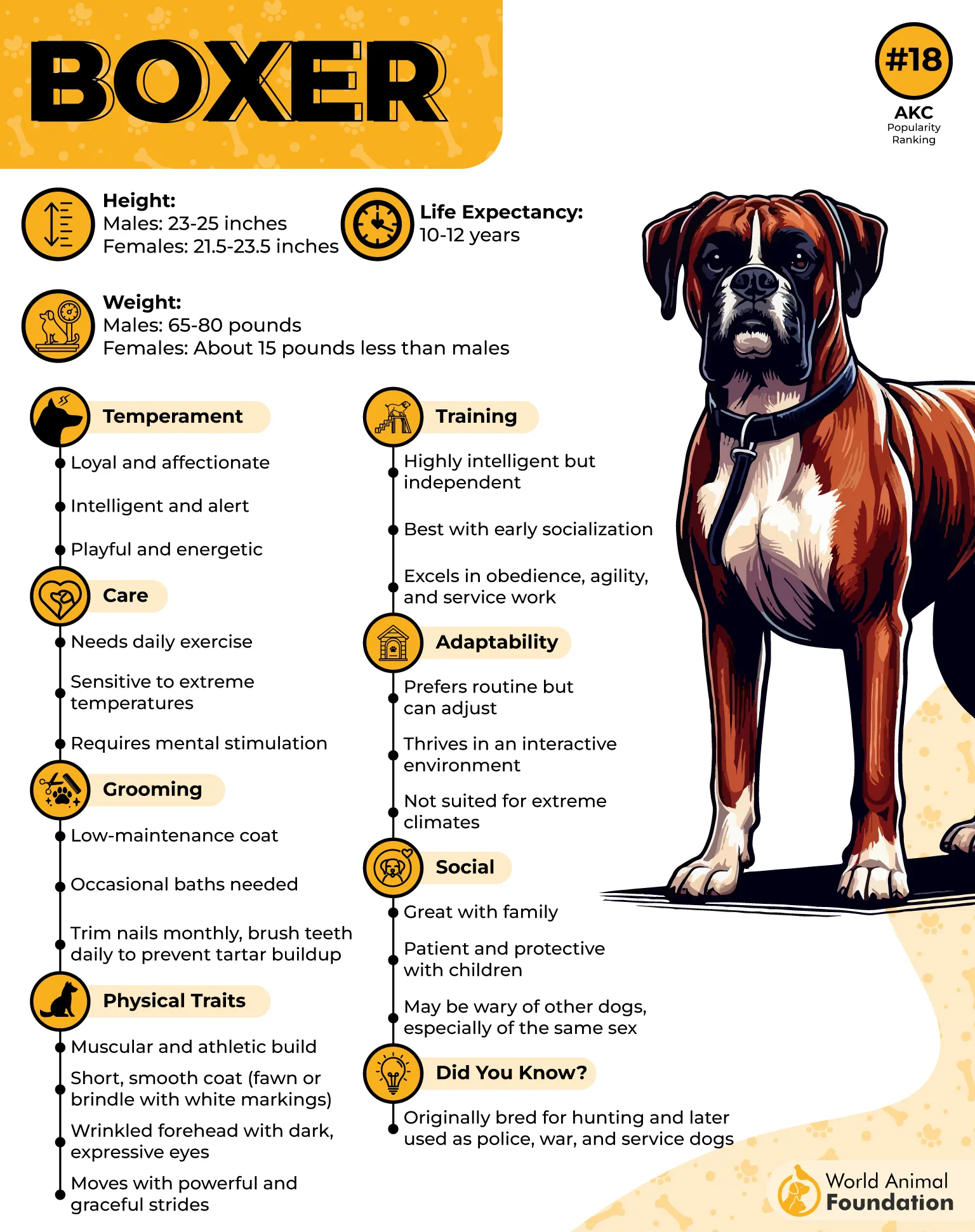
Despite their occasional stubborn streak, their intelligence makes them highly trainable, and their protective instincts turn them into excellent watchdogs and service dogs. However, prospective owners must be mindful of certain health vulnerabilities, which include:
Cancer
Heart conditions, particularly cardiomyopathy
Hip dysplasia
Bloat (gastric dilatation-volvulus)
Known for their exuberance and stamina, Boxers require plenty of exercise and a securely fenced yard to safely burn off energy. They thrive on walks, runs, and interactive play, yet they are happiest when surrounded by family.
With proper exercise, attentive care, and regular veterinary checkups, Boxers can enjoy a full, happy life. When nurtured with love and structure, this energetic breed is more than just a pet—they’re a courageous, playful, and deeply devoted member of the family, always ready to protect and entertain.
6. French Bulldog

With their signature bat-like ears, squashed faces, and irresistible charm, French Bulldogs are small dogs with big personalities, according to the American Kennel Club (AKC). Popular in bustling cities and cozy apartments alike, these little companions are masters at winning hearts without even trying.
Their affectionate nature, playful antics, and low-maintenance lifestyle make them a favorite among singles, couples, and families alike. But behind those expressive eyes and joyful demeanor lies a breed with some unique health considerations that every owner should know.
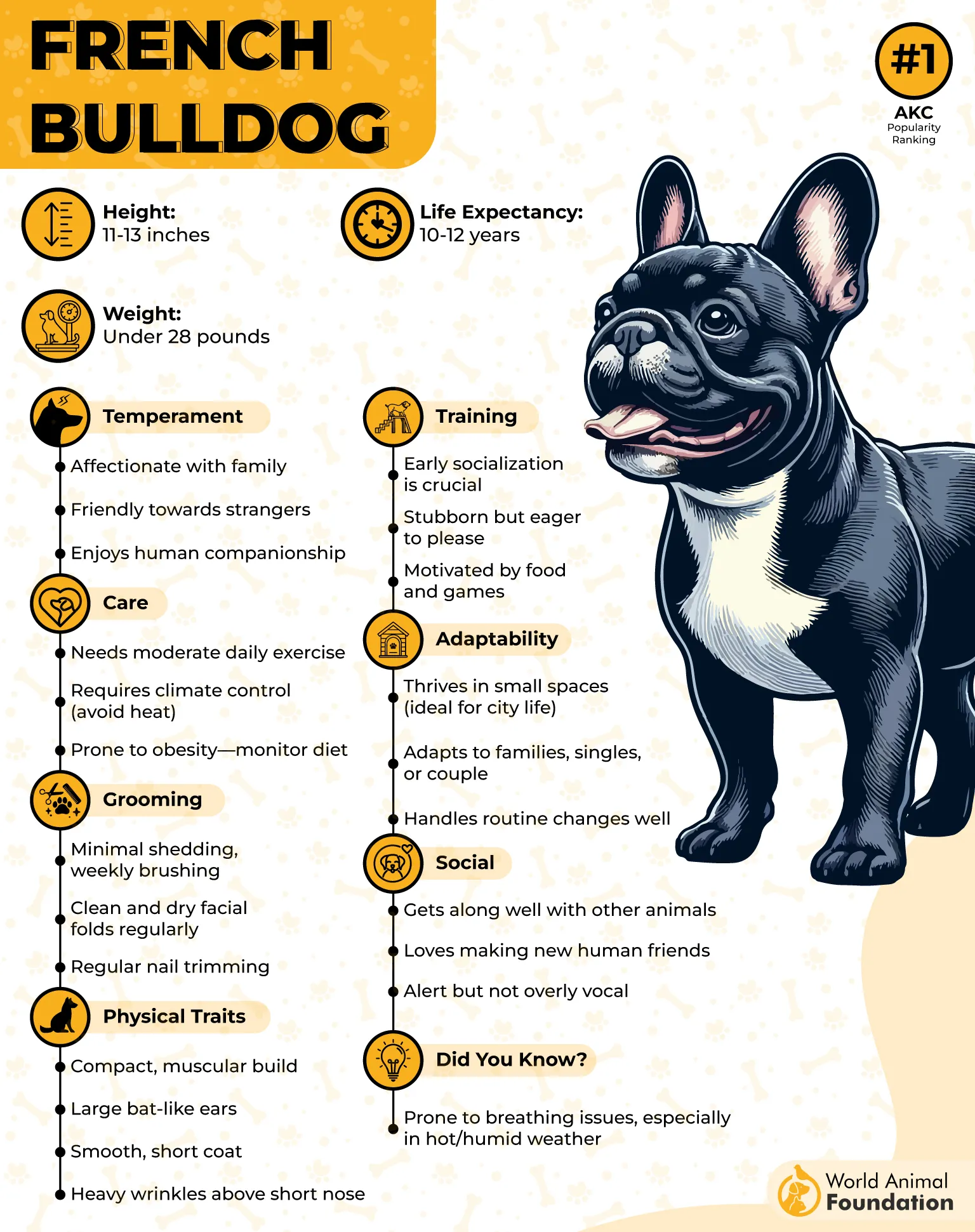
French Bulldogs are compact and fun-loving, yet their bodies can be prone to specific challenges. Potential health issues include:
Brachycephalic airway syndrome
Luxating patellas
Skin allergies
Intervertebral disc disease (IVDD)
Despite these vulnerabilities, Frenchies are generally adaptable, sociable, and alert without being overly noisy. Their moderate energy levels mean they enjoy walks, playtime, and social interaction, but strenuous exercise—especially in warm weather—can be risky due to their short snouts.
With attentive care, regular vet visits, and a healthy lifestyle, French Bulldogs can thrive as affectionate, happy, and long-lasting companions. Their combination of personality and devotion makes them a little dog with a huge heart—and one that will happily settle into life with almost any household.
7. Shih Tzu

If charm had a face, it would probably look like a Shih Tzu. With their luxurious flowing coats, expressive eyes, and affectionate personalities, these little “lion dogs” have captured hearts across the globe.
Originally bred in China, Shih Tzus were considered royal companions, adored for their elegance and loving nature. But behind that adorable exterior lies a breed with some unique health considerations that every potential owner should know.
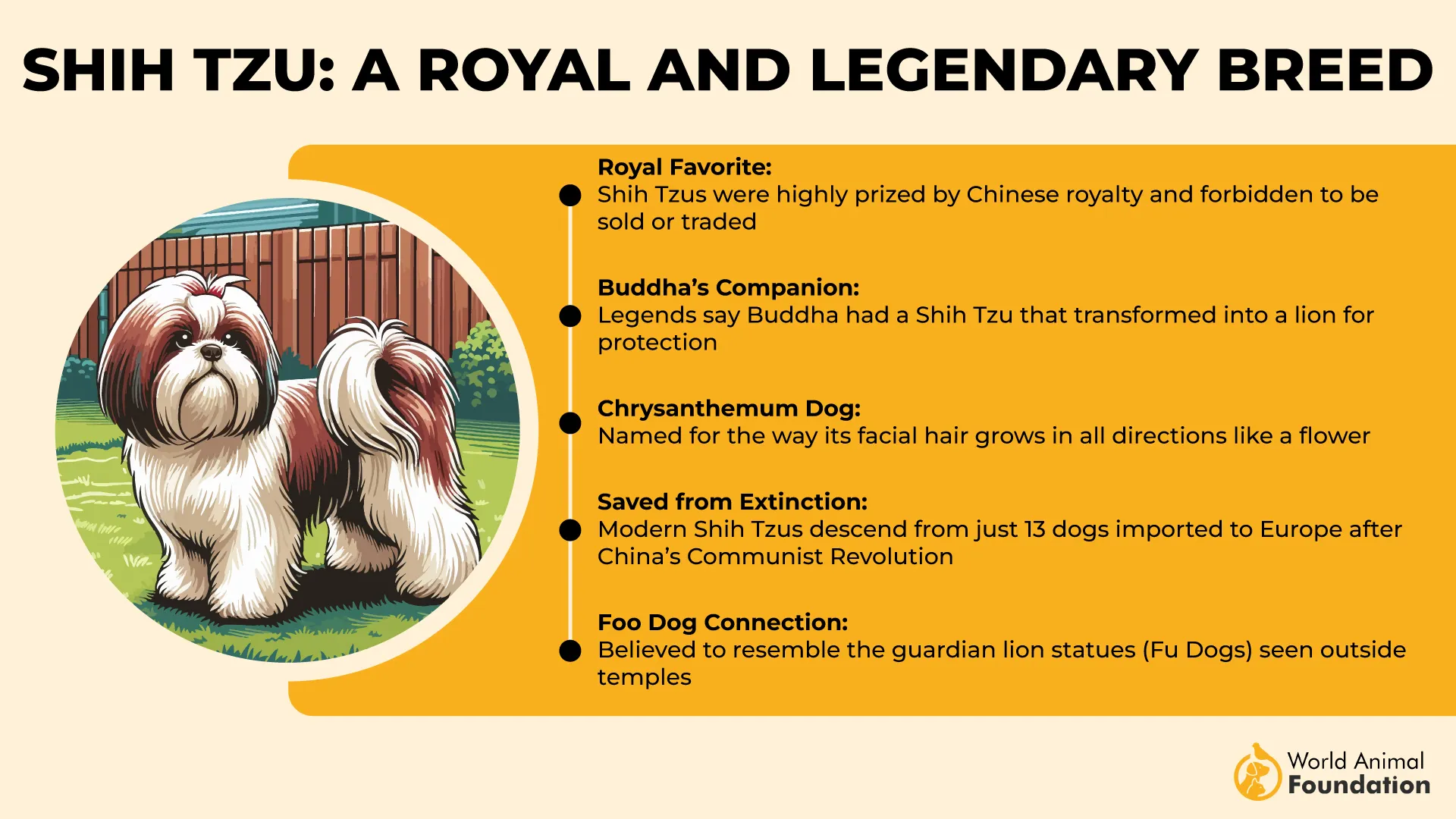
Shih Tzus may be small, but they come with big responsibilities. Their compact size makes them perfect for apartment living, yet they require careful attention to their physical and emotional needs. Without proper care, certain health issues can quietly creep in, affecting their quality of life. These include:
Periodontal disease
Anal gland impaction
Luxating patellas
Brachycephalic airway syndrome
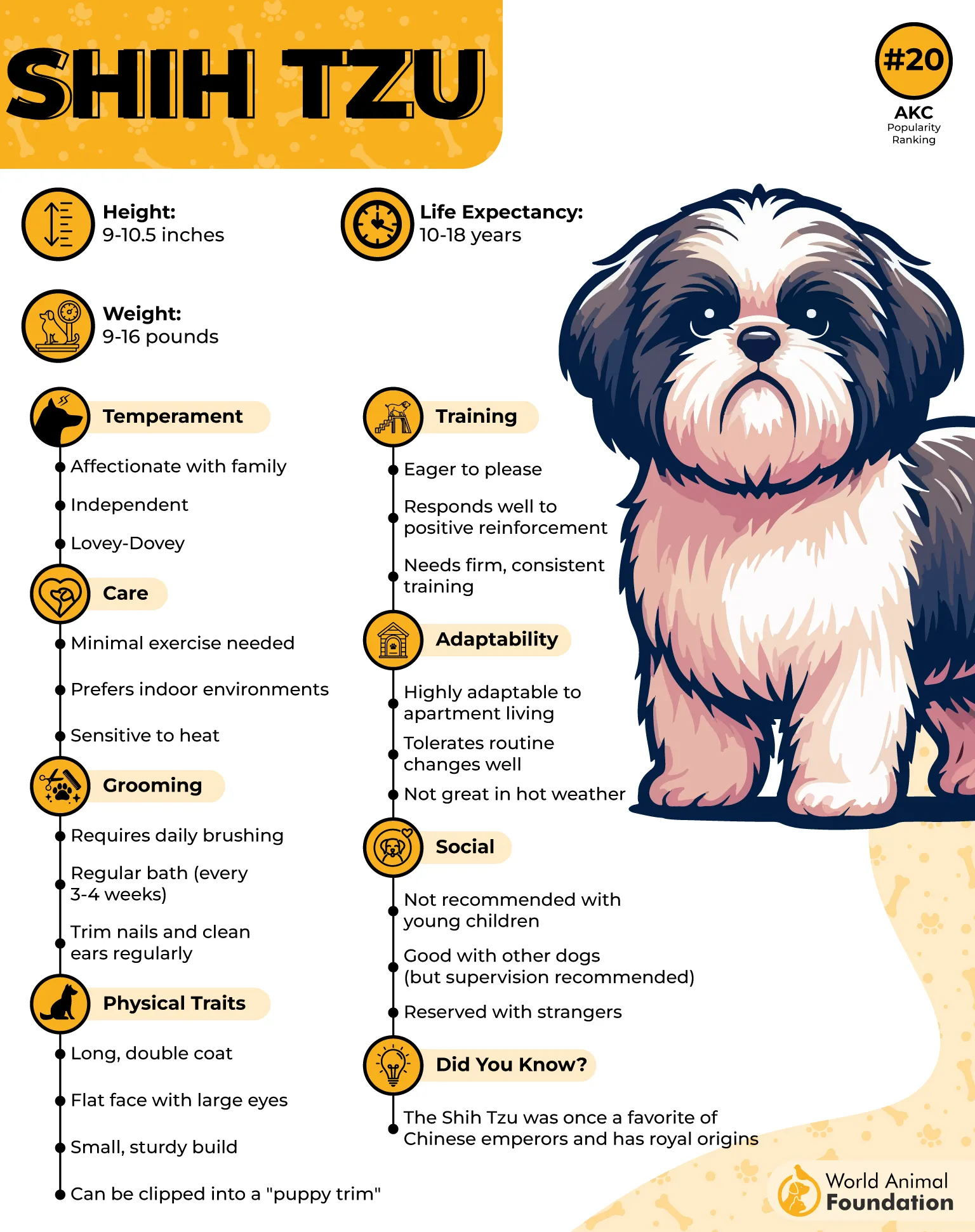
Because of their short snouts, Shih Tzus are sensitive to heat, and too much outdoor play in warm weather can be dangerous, WebMD says. Gentle exercise, proper grooming, and routine veterinary visits are essential to keep them thriving.
When nurtured with love and attention, a Shih Tzu isn’t just a pet—they’re a small, loyal, and joyful companion who will brighten every corner of your home.
Conclusion
Some specific dog breeds require extra attention due to health concerns. Large dogs like Bernese Mountain Dogs, Great Danes, and gentle giants are prone to joint health issues and severe back pain, while flat-faced breeds and brachycephalic dogs may suffer from breathing difficulties. Certain breeds, such as German Shepherds, Golden Retrievers, Cocker Spaniels, Siberian Huskies, and Border Collies, can face heart disease, liver disease, certain cancers, or other medical problems.
Responsible dog owners can help their pets live a healthy life with early diagnosis, medical intervention, selective breeding, and consistent care, ensuring that high-risk breeds are managed effectively from a young age. Choosing the right breed and monitoring many breeds closely can prevent serious health issues and improve a dog’s health alongside other dogs in the household.


